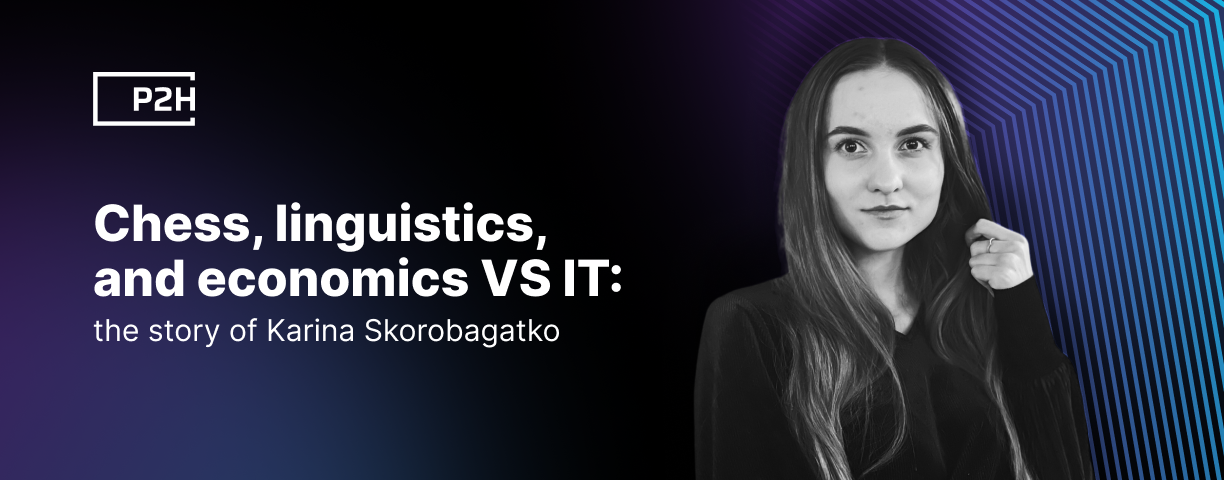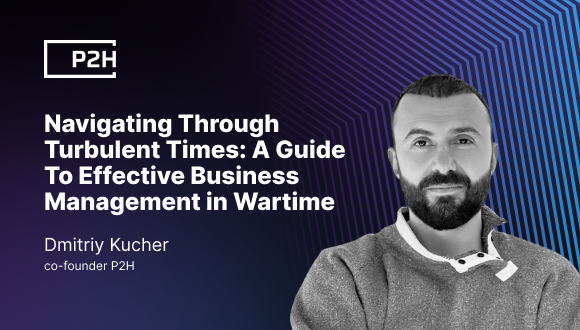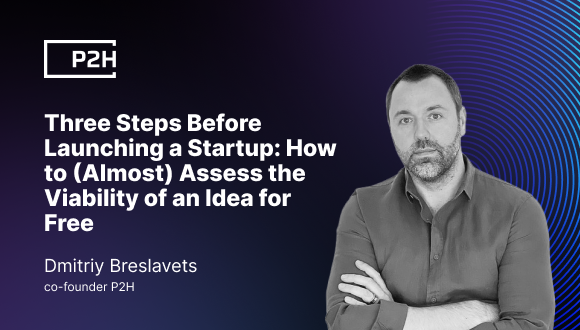
Currently, the entire network is overflowing with appeals that “guarantee” a successful start in programming. But is it really so when it takes years of painstaking work to become a true professional?
We want to tell the story of Karina Skorobagatko, who holds the position of Agile Project Manager at the P2H company. Karina is a professional chess player who planned to become an international economist and studied several foreign languages, but life led her to IT. We will tell you how to combine chess, cybernetics, and philology and become a successful PM in an international company.
I Got Into It Completely by Accident
When I entered the university, my first priorities were economics and everything related – international economics, economic relations, and general economics at Taras Shevchenko National University. Unfortunately, I didn’t have enough points to get a budget place there, so I decided to go where I got it – my 4th priority, Computer Science and Cybernetics.
I knew nothing about IT at that time. I studied at a humanitarian school, I have a C1 diploma in German, and my second foreign language is English. In addition, we were taught Polish, and I learned Spanish on my own. My knowledge of programming was limited to Excel from school computer science classes. However, when my brother, studying at a physics and mathematics lyceum, showed me Python, I didn’t get bored – that’s how programming ended up on my priorities list.
A Parallel Study at Two Universities
Nevertheless, the economy has not ceased to interest me. I understood that economic knowledge, communication skills with foreign clients, and an understanding of financial processes and their formation are necessary for me to develop in IT. Therefore, finishing the 1st year of the Faculty of Computer Science and Cybernetics, I once again passed the external examination for subjects required for admission to the Faculty of Economics. With these results, I entered KNEU to study international economics and simultaneously studied at two universities.
As a result, I have two red diplomas. My first education was in computer science at KNU, and my second was in international economics at KNEU. And now, I am finishing my master’s degree in Computer Science, specializing in “IT Project Management” at KNU.
While studying IT, I understood that I am interested in communicating with programmers because I know how they see everything from the inside. In addition, almost all my family members and friends are related to programming, allowing me to immerse myself even deeper in the profession.
My Chess Career Began at the Age of Four
My parents took me to a class for the first time when I was about four years old, a year before I started school. My first coach, Dmytro Semenov, liked to play with the little one and got interested precisely because of the game approach. There were many children to talk to, play with, and stay with after classes – in short, It was “not stressful” for me to go there.
With age, motivation, and desire were added by the fact that during serious tournaments and championships, it was allowed to skip school. Lessons are less important than taking first place in chess in Kyiv, so my parents often picked me up to take me to a game.
Like everyone else, I started with the 5th grade, then completed the 4th, 3rd, 2nd, and 1st. To receive the next rank — “Candidate for Master of Sports of Ukraine” — specific standards must be met. At some point, I won the Kyiv chess championship and received the Candidate for Master of Sports degree. Also, there has been a Chess Prize named after E. M. Sazonov in Ukraine for over ten years, and I was lucky to be the first to receive it. I was 13 then.
When the interest in chess gained seriousness and development, the number of trips outside the capital also increased. I have lived and worked in Kyiv all my life. With the appearance of greater success in the game, my parents began to take me to various cities in Ukraine for tournaments. I played many games in Lviv, Odesa, and Mykolaiv. Every summer, the “Solar Pawn” championship was held near Odessa in Chornomorsk. Every year we came to the sea as a whole family and simultaneously participated in the tournament: me, my brothers, and sometimes my father. First, you go on a tour, and then you go to the beach to relax – that’s how every summer of my childhood passed.
The Championship Is Always a Great Stress
When preparing for tournaments throughout my chess career, I changed many coaches and clubs because I wanted to see different things from a coach at various stages of development. If the first should play and instill an interest in sports, then at an older age, the goal is to make the child a champion. This is an entirely different approach to teaching and forming groups (which are sometimes impossible to get into in principle if the coach himself does not “want” you).
Sometimes training was so problematic that during or after classes, I would run away and cry because many people used yelling in their teaching methods, and I didn’t like that. In addition to the sometimes complicated relationship, there was also a financial issue because individual classes, although more effective than a group, are much more expensive.
Chess Greatly Contributed to the Development of the Profession
My experience in chess had a significant impact on the development of my communication skills and the acquisition of a wide circle of contacts. At my previous workplace, I conducted chess master classes and generally participated in such activities. In one charitable organization attached to the Catholic Church, I led a chess club intending to get children interested. Later, I started receiving requests for individual lessons, and even before Covid, I went to the players’ homes all the time and gave individual lessons.
It’s cool when people who know how to play ask you to play — it’s like a kind of small talk, a common situation at a university or in a dormitory. For example, there was a teacher who found out that I was playing, and we played verbally for a while (a variant of chess in which a person plays without looking at the board, that is, “blindly”. In this, the opponent’s moves are announced verbally).
In addition, logical chess problems develop thinking, imagination, and memory. In addition to poems, you had to study chess debuts — the first 10-20 moves you must memorize in advance. The game always starts from the same position, so there are a limited number of options for how you can walk in the initial stage. And this limited number of the best options at the beginning of the game is named debuts. They are learned like rhymes and then constantly reproduced.
However, it is difficult to identify which skills were acquired through chess because I practiced in many clubs. Dancing, art and music schools, sports orienteering, basketball, billiards – in short, various activities to try, what interests me. For example, drawing calms and distracts me, and I relax. I draw flowers with dry pastels.
The “Secret” to My Productivity Is to Write Down and Act
My rule is always to write everything down, even minimal tasks that take 5 minutes. This makes it easier for the brain to understand the volume of work expected to be completed. I have a separate notebook for studying and a separate notebook for work, where I write down all my work tasks. At some point, I wrote either a course or a thesis every year, and keeping track of tasks became a necessity.
It must be assumed that small tasks, when accumulated, form a huge layer of work. That’s why you can’t forget about them either and must prioritize them. Of course, keeping everything in my head is impossible, and I constantly look into notebooks to refresh my memory. In short, I always write everything down.
Also, I have an inner game that significantly affects my productivity. If I’m afraid to do something or don’t know how to approach a task, I always do it. It always helped me a lot in communication with teachers, for example. I challenged myself, and I accepted it myself.


